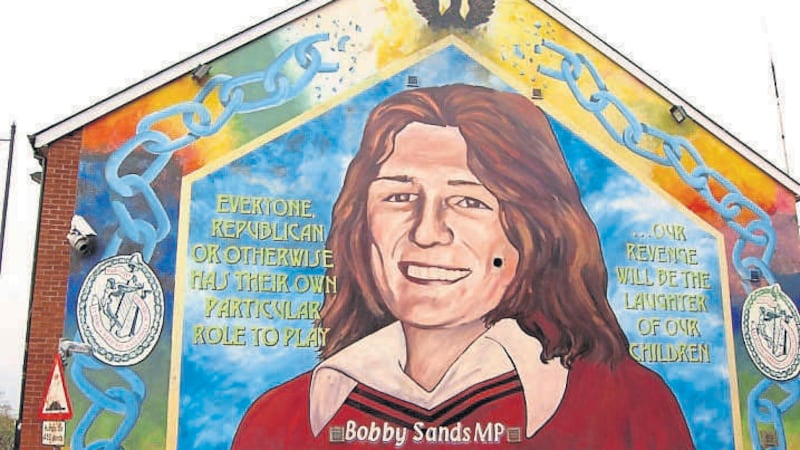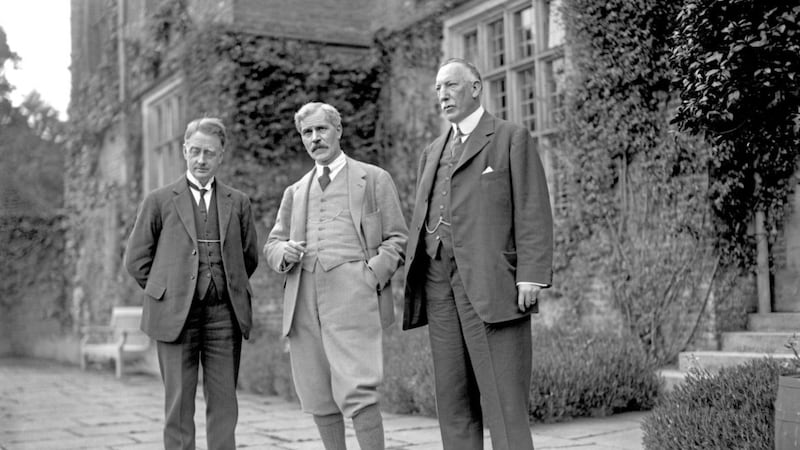BOBBY Sands MP died on May 5, 35 years ago. The anniversary of his death happens to coincide with next week’s assembly election.
A few days before he died I was in Bobby’s prison cell. The scene never leaves me. He was gaunt. His eyes were bright orange.
He was blind. We held hands. He told me he was ready to die.
When the people of Fermanagh/South Tyrone went to the polls to elect Bobby on April 9, 1981 they did so as a united community with a united objective: to give Bobby a mandate that would save his life and compel Margaret Thatcher to compromise. She refused.
Ten incredibly courageous republicans, two of whom were married, died on hunger strike and scores of others died on the streets, including civilians, and children killed by plastic bullets, police and prison officers and soldiers.
One prison governor was later to describe Thatcher’s attempts to break the prisoners as “a battle for the false aim of criminalisation that was always going to fail.”
The hunger strikers were products of the unjust state in which they and their parents grew up. Their armed struggle was a reaction to a violent, anti-democratic, repressive, sectarian state.
Their politics sustained them through the prison protests and the beatings in the H-Blocks and Armagh jail. What their families suffered is indescribable.
Their struggle has inspired many and continues to be depicted in documentaries, feature films, prose and poetry.
Perhaps the classic account is the book Ten Men Dead by David Beresford, who died last week, a book that has never been out of print.
It has often been said - correctly, in my opinion – that the election of Bobby Sands and hunger striker Kieran Doherty provided the springboard for the republican electoral strategy which today sees Sinn Féin as the largest party in Ireland.
At its Ard Fheis in Dublin last weekend Sinn Féin celebrated the centenary of the 1916 Rising and its remarkable breakthrough in the Dáil election with 23 TDs.
I was thrilled to be in the hall of Dublin’s convention centre and hear Eoin O’Broin introduce himself as ‘Eoin O’ Broin TD’.
I remember Eoin as a young man living in Belfast with his long dreadlocks and his passionate socialist views. There he became a Belfast councillor.
The dreadlocks are gone but the passionate views are as strong as ever.
Since 1981 Sinn Féin has built its popular appeal around its principle demand for Irish independence and a society based on equality.
Equality is a universal principle and is applicable north and south. It is a cutting-edge demand which challenges the status quo and the power elites.
In the north it means equality between nationalists and unionists in the broadest sense, sharing political power in the assembly and recognising and respecting each other’s cultural identity.
It means promoting Irish independence while demanding here and now political, cultural and economic rights for all but particularly nationalists who have borne the impact of decades of discrimination.
It means supporting the Irish language and the introduction of Acht na Gaeilge. It means opposing partition, discrimination and unionist domination.
It means worker’s rights, strong trade unions, properly funded public services and a welfare system. It means an inclusive economy with a strong and thriving private business sector being encouraged and assisted by government to create jobs and prosperity.
Those going to the polls on May 5 need to ask who can best deliver the type of society in the north based on equality and one which merges into a unified Ireland.
It certainly is not small left-wing parties or independents who side-step or ignore or are selective about issues of injustice and discrimination claiming they want to represent and unite the working classes.
In their desire to ‘unite’ the working classes they ignore partition and unionist discrimination and its impact on nationalists of all classes especially the working classes.
The unity of purpose among nationalists that elected Bobby Sands MP is required in this election to ensure that the largest possible number of republican MLAs are elected to the assembly and the largest number of Sinn Féin ministers appointed to the executive.
That is the only guarantee that equality will be implemented.








